Jojoba oil and castor oil are two very different products and there always seems to a lot of confusion regarding Jojoba Oil vs castor oil.
Let’s break down the differences between these commonly confused oils in order to discern their essential uses and which one is right for your hair.
Here we have a comparison of Jojoba Oil vs Castor Oil that aims to highlight the key differences between the two oils so that you can determine which oil is best for your needs. So, keep reading and you’ll surely end up being more aware on oils than you currently are.
Contents
- 1 About Castor Oil
- 2 About Jojoba Oil
- 3 Jojoba Oil Vs Castor Oil: Top 8 Differences
- 4 Jojoba Oil Vs Castor Oil Similarities
- 5 Jojoba Oil Vs Castor Oil Benefits
- 6 Is Castor Oil Better Than Jojoba Oil?
- 7 Can I Mix Jojoba Oil With Castor Oil?
- 8 Can Jojoba Oil And Castor Oil Replace Each Other?
- 9 Jojoba Oil Vs Castor Oil For Hair Growth
- 10 Jojoba Oil Vs Castor Oil For Eyelash Growth
- 11 Jojoba Oil Vs Castor Oil For Skin
- 12 Jojoba Oil Vs Castor Oil For Beard
- 13 Jojoba Oil Vs Castor Oil For Face
- 14 Jojoba Oil Vs Castor Oil: Side Effects
- 15 Jojoba Oil Vs Castor Oil: Conclusion
About Castor Oil
Castor Oil is derived from castor beans of the castor plant, it is a colorless to very pale yellow liquid that has its origins in folk medicine. It was used as an ointment on skin due to its anti-inflammatory properties and also taken orally as a cure for various ailments.
Castor oil can be used as a hair treatment and is often recommended for those suffering from dry hair, scalp psoriasis and similar ailments. When applied to the hair, it is said to work as an effective conditioning agent which stimulates blood circulation in the scalp and repairs damaged hair strands by smoothing them down. It’s also said to help treat dandruff by soothing the scalp.
Castor Oil is heavy – almost solid at room temperature – so it’s not ideal for use on hair which is fine, thin or fragile. It can be used on all hair types but really excels in treating dry and damaged hair.
About Jojoba Oil
Jojoba oil is a beautiful blend of esters and fatty acids that is found in the seeds of the jojoba shrub. It’s brownish color comes from it’s distinctive nutty aroma and has often been compared to sebum, the oil naturally secreted by human skin.
Jojoba oil can be used on all hair types and because it has a molecular structure that is very similar to the oils naturally secreted by skin, it absorbs into the scalp and hair strands quickly and easily. It’s also said to have anti-inflammatory properties which help calm irritated scalps while regulating production of natural sebum.
Jojoba oil is great for a number of reasons, including a long shelf life thanks to its stability in heat and light. It can be used as a leave-in conditioner or mixed with other essential oils such as lavender or rosemary for aromatherapy purposes.
Jojoba Oil Vs Castor Oil: Top 8 Differences
While both Castor Oil and Jojoba Oil are beneficial when applied to hair or skin, there are differences between them which mean different for different people. So, today we’re going to discuss what these differences are.
These oils have different fatty acid profiles which affect their chemical properties. Castor Oil is said to be better for treating dry hair and scalp conditions because it contains higher levels of ricinoleic acids (up to 90%) while jojoba oil has very little (around 6-12%).
This means that when used as a hair treatment, castor oil penetrates deep into your strands to deliver its conditioning effects whereas jojoba oil sits on the surface of the hair. Lets just skip the summaries for now and look at differentiating aspects of these oils:
1. Texture
Castor oil is viscous and can be hard to work with if it’s too thick. It’s very heavy which makes it great for moisturizing hair but not so good for preventing breakage or moisturizing thin/fine hair.
Jojoba oils’ viscosity is similar to that of human sebum (natural oil secreted by the scalp) – it absorbs quickly, penetrates deep into your hair shafts and doesn’t leave an oily residue behind.
Related Video – Jojoba Oil Vs Black Castor Oil
https://www.youtube.com/watch?v=iEDr1OJWDVw
2. Aroma
Jojoba Oil has a nutty scent that you either like or hate whereas castor oil smells like paint thinner (at least to me). For those of you who are sensitive about fragrance in your skincare products, you may be more comfortable with jojoba oil since it doesn’t have a strong scent.
3. Shelf Life
Castor oil has a limited shelf life and needs to be kept in the fridge so that it doesn’t go rancid on you. Due to its high ricinoleic acid content, castor oil becomes unstable when exposed to air and light over time – meaning your jar of castor oil can easily turn on you!
Jojoba Oil is very stable because its chemical structure makes it resistant to breaking down and also because it’s fatty acids are made up of esters which help protect against degradation from air and light.
4. Heaviness
Jojoba Oil is not as heavy as Castor Oil. This is an important factor in choosing a product to moisturize fine hair or even just blend into your hair for styling and conditioning purposes. It’s also great because it doesn’t weigh down hair, making it ideal for fine/thin/fragile strands which need deep conditioners but don’t want the added weight of oil sitting on their heads.
5. Penetration
Castor Oil can penetrate deeper (almost like a deep conditioner) while Jojoba Oil sits on the surface of the strand. This means that if you’re looking for serious conditioning, castor oil will do more, but jojoba oil is better at detangling and preventing breakage – two problems that often occur alongside dry and brittle hair.
6. Skin And Scalp Benefits
Both Castor Oil and Jojoba Oil have anti-inflammatory properties which help fight irritation on your scalp and soothe dry skin, but castor oil is very good for treating dandruff due to its antibacterial properties. If you suffer from sensitive skin or eczema, jojoba oil may be a better choice due to its similarity in fatty acid composition with our own natural sebum.
It’s also got antifungal properties which comes in handy if your scalp or face is prone to fungal acne breakouts like pityrosporum folliculitis (commonly known as “fungal acne”). This makes it great for both scalp and skin issues.
Castor oil, on the other hand, is more effective at treating dry scalp conditions but can be irritating to sensitive skin types because of its ricinoleic acid concentration which has irritant properties.
7. Antimicrobial And Anti-inflammatory Properties
Both jojoba and castor oil have anti-inflammatory properties that help fight acne – along with hundreds of other essential oils! Castor Oil is used in treatments for very severe cases where malassezia yeast overgrowth is present (which contributes to the development of pustular and cystic acne).
The reason it’s so effective for this purpose is because ricinoleic acids also have antifungal and antimicrobial properties which mean they can quickly reduce inflammation and kill skin and scalp infections.
Jojoba oil has anti-inflammatory and antimicrobial properties but its fatty acid profile is not as strong an acne fighter, making castor oil a better choice for eczema and eczematous conditions that exacerbate seborrheic dermatitis.
8. Price And Availability
Castor oil is cheaper than jojoba oil because it’s derived from a crop instead of being extracted from the seeds of an expensive shrub. If you’re on a budget and want to moisturize your hair and skin or treat scalp conditions, castor oil will be your best bet.
If you’re willing to spend more money on a product that’s better for fine/thin/fragile hair and doesn’t smell as strongly as castor oil, then go with jojoba oil instead!
Jojoba Oil Vs Castor Oil Similarities
- Both have antibacterial and antifungal properties
- Both penetrate the hair shaft to hydrate from within
- Use for scalp conditions, high porosity hair or sensitive skin
- Both have anti-inflammatory properties
- Both are very stable oils that can be used for cooking or in cosmetics to prevent rancidity
Jojoba Oil Vs Castor Oil Benefits
Top Jojoba Oil Benefits
- Conditioning without weight
- Anti-inflammatory, antimicrobial properties
- Similar to natural sebum profile which makes it hypoallergenic and less likely to cause breakouts or irritations
- Good for preventing/treating scalp conditions like dandruff, dermatitis, psoriasis
- Helps with hair growth by conditioning the scalp 5x better than any other carrier oil, 6x better than mineral oil – meaning that skin conditioners penetrate deeper into the skin when jojoba is used as a base in treatments, 7x better than olive oil – making it an amazing moisturizer for all skin types including very sensitive skin
- Anti-inflammatory
- Can help treat Malassezia yeast overgrowth (the root cause of seborrheic dermatitis, psoriasis, dandruff, rosacea and many other skin conditions)
Top Castor Oil Benefits
- Penetration – can penetrate deeper into your skin and hair than jojoba oil meaning that it is more effective at treating dry skin and scalp conditions
- Hair Growth – contains vitamins A, B1, B2 and E as well as essential fatty acids Omega 6 and 9 which makes it a wonderful hair growth stimulator
- Antimicrobial properties– contains antibacterial and antifungal ricinoleic acids as well as anti-inflammatory oleic acid
- Can invigorate the scalp to help promote healthy sebum production, treat dandruff, dermatitis, eczema
- Hypoallergenic – soothes inflammation and irritation of sensitive skin types including rosacea sufferers
- Cheaper than Jojoba oil
- Anti-acne properties – effective treatment for bacterial acne vulgaris (common acne) and fungal acne
Is Castor Oil Better Than Jojoba Oil?
Both castor and jojoba oil help moisturize dry skin and hair but castor oil is better for those that suffer from scalp conditions like dermatitis, dandruff, seborrheic dermatitis, eczema or psoriasis. It’s also responsible for the amazing benefits you get from many anti-dandruff shampoos like Head & Shoulders.
The reason castor oil is so good at treating scalp conditions is because of its ricinoleic acid concentration that has antimicrobial properties which can kill germs that cause infections. On the other hand, jojoba oil is more suitable for fine/thin/fragile hair types because of its ability to penetrate deeper into the hair follicle rather than just the surface of the hair.
It also has anti-inflammatory properties which make it less likely to cause irritations or inflammation of delicate thin/fine hair types, making it a gentler choice for fine/thin/fragile hair conditions like dandruff, dermatitis, seborrheic dermatitis and even hair loss!
Can I Mix Jojoba Oil With Castor Oil?
You can mix castor oil and jojoba oil together but there is no guarantee that this will benefit your hair the way you’d like it to because they both have different benefits. If you’re looking for more conditioning, then jojoba oil is better suited for you since it penetrates deeper into the skin than castor oil does.
On the other hand, castor oil has properties that make it an excellent natural solution for scalp conditions like dermatitis, dandruff, eczema and psoriasis which makes it great at treating your hair/scalp if you suffer from any of these conditions!
Can Jojoba Oil And Castor Oil Replace Each Other?
Not really! It’s best to use them in their different forms in your skin and hair care routine.
When it comes to choosing which one is better for what, jojoba oil penetrates deeper into the skin and hair while castor oil has stronger antimicrobial properties which make it more effective at treating scalp conditions like psoriasis, dandruff, dermatitis and seborrheic dermatitis (which makes it great at promoting healthy hair growth).
However, both oils are hypoallergenic and gentle, making them suitable for all skin types including very sensitive skin types like rosacea sufferers!
Jojoba Oil Vs Castor Oil For Hair Growth
Both jojoba oil vs castor oil can help you grow your hair longer, thicker and stronger but there are some conditions that castor oil is better suited for.
If you suffer from scalp conditions like dermatitis, dandruff, seborrheic dermatitis or psoriasis then castor oil will probably benefit you more than jojoba oil because it has antimicrobial properties that make it great at treating scalp infections/inflammations which causes these conditions – also because of its ricinoleic acid concentration.
If your priority is to have healthy fine/thin hair but no scalp condition (skin irritation), then use jojoba oil mixed with other natural oils to give your hair a boost with a mix of different benefits! If you want to treat your scalp infections/inflammations, use castor oil with jojoba oil mixed in it.
You can also mix this with tea tree oil to make an excellent anti-dandruff shampoo which is even better at treating fungal infections like jock itch and ringworm! Always remember that more isn’t necessarily better, especially when it comes to natural oils because they’re very potent and can cause sensitivities if used too much!
Jojoba Oil Vs Castor Oil For Eyelash Growth
If you’re looking for an eyelash growth enhancer then castor oil is better suited because it has antimicrobial properties that make it great at treating the bumps and inflammation on your eyelid that causes eye lash loss/balding – also due to its ricinolein acid concentration.
On the other hand, jojoba oil has anti-inflammatory properties which makes it less likely to cause irritations or inflammations of delicate eye lashes like styes (infection in your eyelid) and blepharitis (inflammation of your eyelids). It’s also not as irritating to sensitive eyes compared to castor oil because it doesn’t penetrate into the eyes!
Jojoba Oil Vs Castor Oil For Skin
Both jojoba oil and castor oil are beneficial for your skin but there are some conditions that castor oil is better suited for.
Castor oil has the ability to kill the fungus that causes infections like jock itch, ringworm and athlete’s foot because of its antimicrobial properties which makes it great at treating wounds, sores and abrasions that haven’t healed yet on your skin, making it one of the best natural remedies for healing scars .
On the other hand, jojoba oil regulates pH levels in your body while protecting the surface layer of the skin which prevents drying out – this means it’s excellent for dry/rough skin types while also being compatible with sensitive skin types!
If you have dry/rough skin and want an excellent moisturizer, it’s best to use jojoba oil because of its affinity for the cells and layers of your skin and hair. Jojoba oil forms a lipid layer on your skin that keeps moisture in while protecting sensitive areas like your face from getting dehydrated!
Jojoba Oil Vs Castor Oil For Beard
Both jojoba oil and castor oil are beneficial for your beard growth – castor oil stimulates hair growth on the surface of your skin while jojoba oil penetrates deep into your hair follicles.
Castor oil has stronger anti-inflammatory properties than jojoba so it’s great at treating conditions like dermatitis, dandruff, seborrheic dermatitis, psoriasis that causes inflammation of your beard area.
If you’re looking to promote faster/thicker facial hair growth then use both oils together!
Jojoba Oil Vs Castor Oil For Face
If you want an all-natural way to get rid of acne breakouts, castor oil is the answer because it has antimicrobial properties that helps treat and clear your skin of infections/inflammations caused by bacteria and fungi – also due to its ricinolein acid concentration.
On the other hand, jojoba oil regulates pH levels in your body while protecting the surface layer of your skin which prevents drying out – this means it’s excellent for dry/sensitive skin types! Castor oil penetrates deep into pores while jojoba oil forms a lipid layer on your face preventing moisture from escaping.
So, if you have acne-prone or oily skin then use castor oil to help get rid of blemishes by getting deep down into your pores! Just remember that it’s also important to cleanse your face properly so you can avoid drying out or damaging the surface layer of your skin!
Jojoba Oil Vs Castor Oil: Side Effects
Castor oil has a few side effects and it is more likely to cause irritation and inflammation on your skin and eyes so if you have sensitive skin or eyes then it’s best to use jojoba oil instead.
Although Jojoba Oil doesn’t penetrate as deeply as castor oil into the surface layer of your skin, some people with acne-prone or oily skin types may prefer using both oils together – just remember that too much good stuff can be bad for your skin if you’re not careful!
It’s always a good idea to experiment with different combinations of natural ingredients like jojoba and castor oil by doing a patch test first before applying them directly onto the surface of your face/body: we highly recommend mixing them in a small bottle, shaking it and making sure they blend together properly before applying them – you can always add more of one or the other if necessary so it’s easy to control your ideal texture and viscosity.
Jojoba Oil Vs Castor Oil: Conclusion
Even though both oils are excellent for your skin, hair and beard – you can’t use them “in place of” one another because their properties are very different!
If you have dry/rough skin then jojoba oil is the best choice to naturally moisturize your skin but if you have oily/acne-prone skin then it’s best to use jojoba oil mixed with castor oil!
Use both oils to give yourself a deep, soothing cleanse and shave – you can apply them directly onto your face or mix them with a shaving cream of your choice. Also remember that it’s always a good idea to patch test combinations of different natural ingredients before applying them directly onto the surface of your skin!


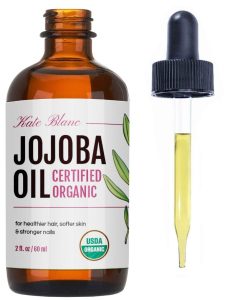
![30 Best Jojoba Oil Shampoo [Reviewed] 30 Best Jojoba Oil Shampoo [Reviewed]](https://theoilvirtue.com/wp-content/uploads/2022/02/J·R·LIGGETTS-All-Natural-Shampoo-Bar-Jojoba-And-Peppermint-300x300.jpg)
![15 Best Jojoba Oil Body Oil [Reviewed] 15 Best Jojoba Oil Body Oil [Reviewed]](https://theoilvirtue.com/wp-content/uploads/2022/02/Jojoba-Oil-By-Leven-Rose-Pure-Cold-Pressed-Organic-Unrefined-Moisturizer-For-Skin-Hair-Body-Nails-And-Cuticles-300x300.jpg)
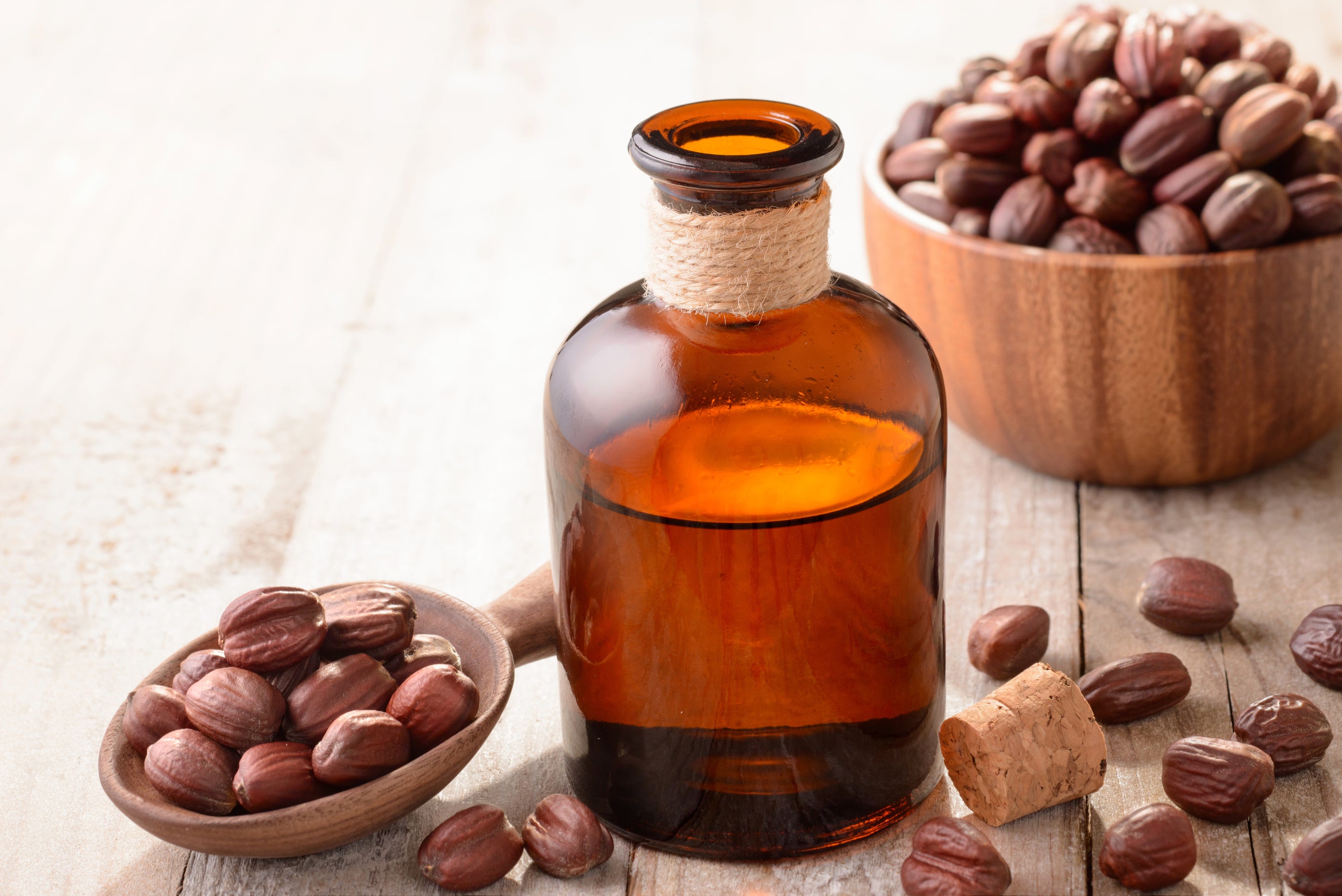
![20 Best Jojoba Oil Shave Oil [Reviewed] 20 Best Jojoba Oil Shave Oil [Reviewed]](https://theoilvirtue.com/wp-content/uploads/2022/02/The-Man-Company-100-Natural-Beard-Oil-For-Men-With-Almond-Oil-Thyme-Argan-And-Jojoba-Oil-300x300.jpg)
![12 Best Jojoba Carrier Oils [REVIEWED] 12 Best Jojoba Carrier Oils [REVIEWED]](https://theoilvirtue.com/wp-content/uploads/2022/02/Cliganic-USDA-Organic-Jojoba-Oil-100-Pure-Natural-Cold-Pressed-Unrefined-Hexane-Free-Oil-For-Hair-Face-Base-Carrier-Oil-244x300.jpg)
![15 Best Jojoba Oil Hair Oil [REVIEWED] 15 Best Jojoba Oil Hair Oil [REVIEWED]](https://theoilvirtue.com/wp-content/uploads/2022/02/Cliganic-USDA-Organic-Jojoba-Oil-100-Pure-Natural-Cold-Pressed-Unrefined-Hexane-Free-Oil-For-Hair-Face-243x300.jpg)



![10 Best Jojoba Oil Gallon [Reviewed] 10 Best Jojoba Oil Gallon [Reviewed]](https://theoilvirtue.com/wp-content/uploads/2022/02/Cliganic-Jojoba-Oil-Non-GMO-Bulk-Gallon-128oz-100-Pure-Natural-Cold-Pressed-Unrefined-Hexane-Free-Oil-For-Hair-Face-167x300.jpg)
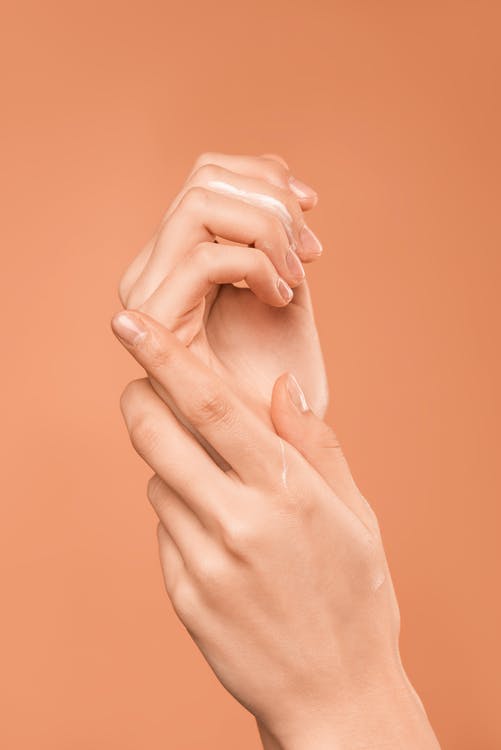
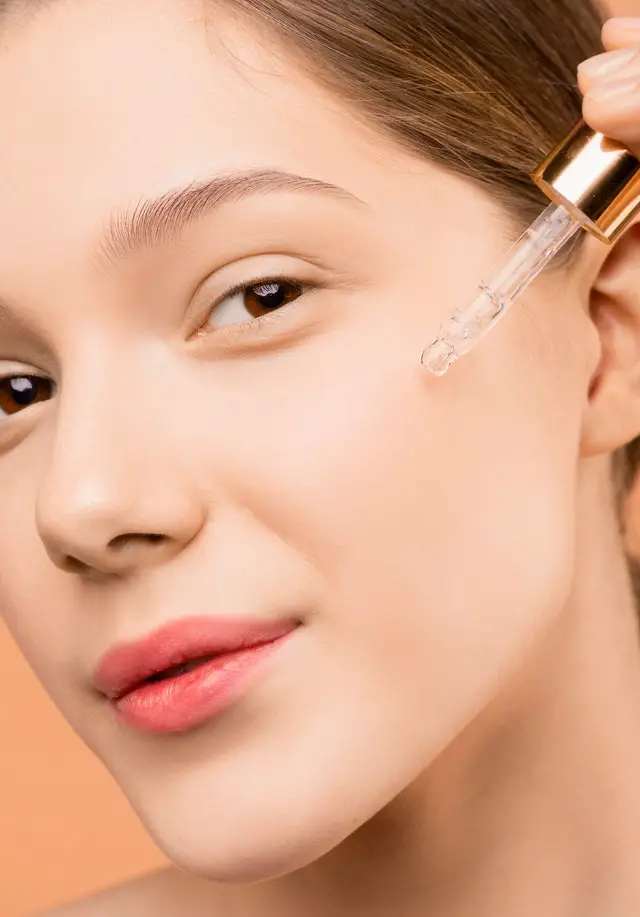
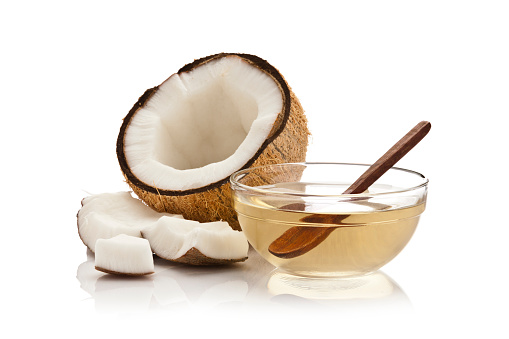
![18 Best Jojoba Oil Soap [Reviewed] 18 Best Jojoba Oil Soap [Reviewed]](https://theoilvirtue.com/wp-content/uploads/2022/02/Cove-Castile-Soap-Unscented-Organic-Argan-Jojoba-And-Hemp-Oils-228x300.jpg)
